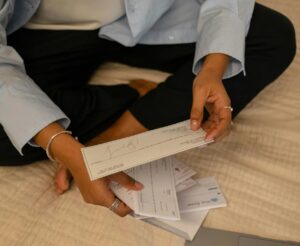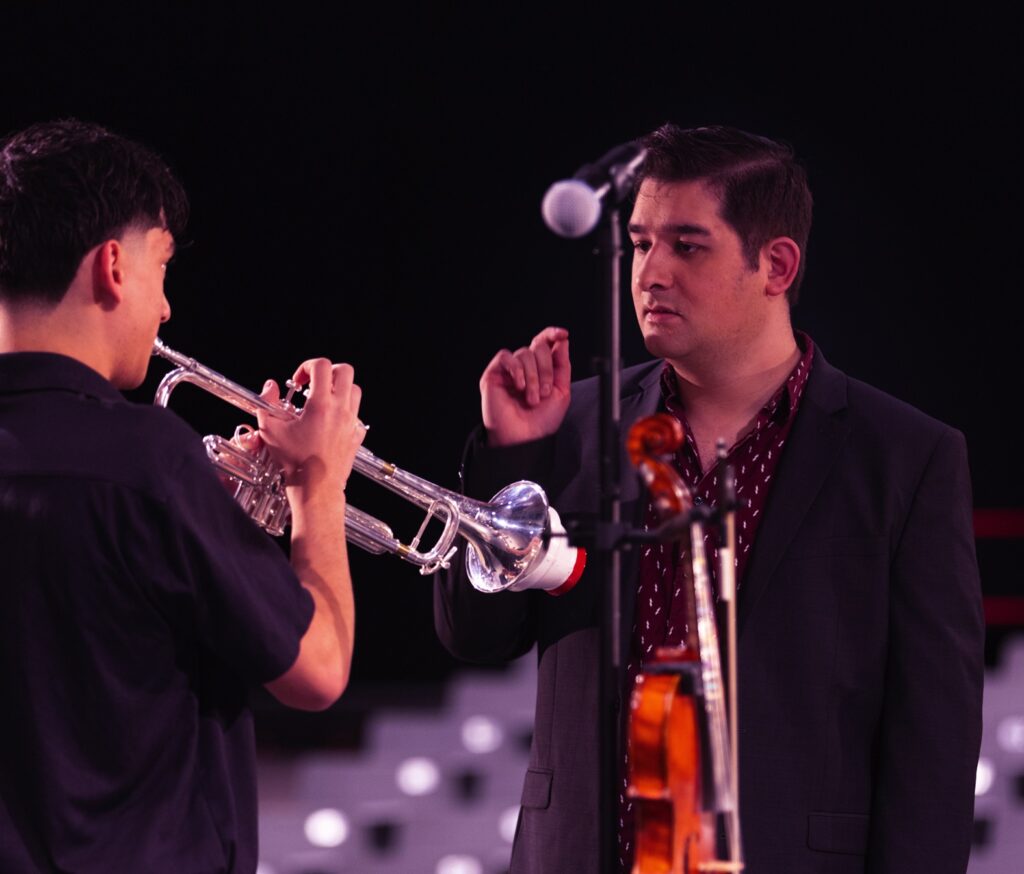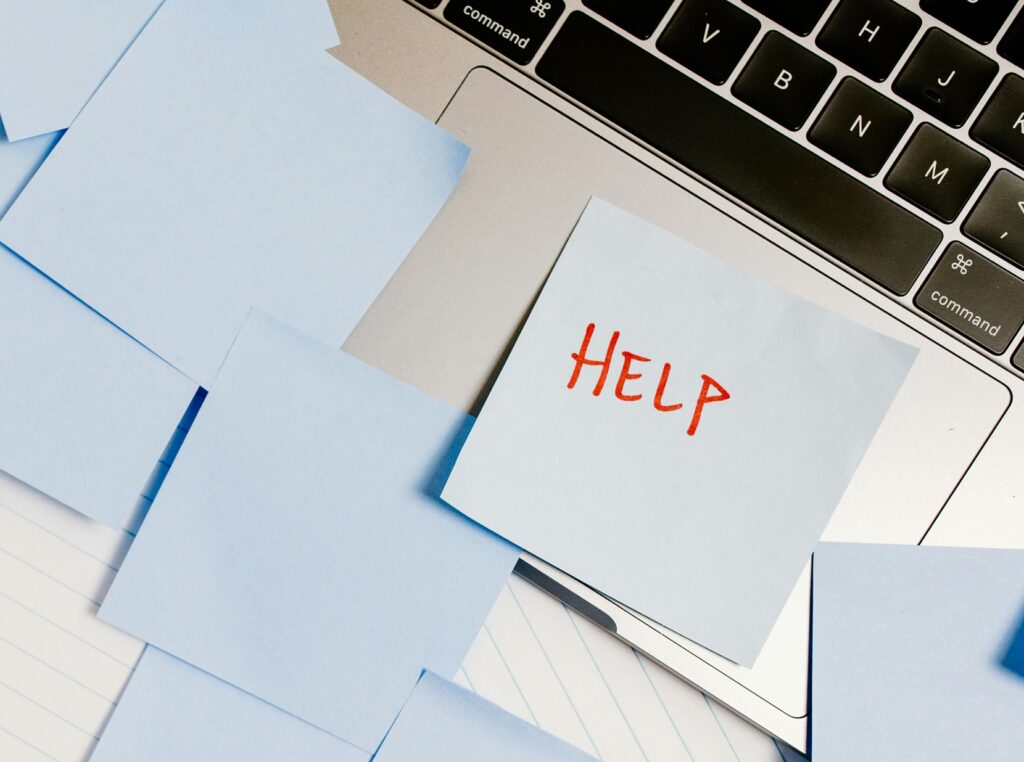Tagged Under:
First-Year Money Advice I Wish I Had
Make a financial plan and stick to it — your future self is depending on you.
The first time I saw my teaching contract, I felt rich.
I was 23, fresh out of college, and my starting salary had a comma in it. I remember thinking, “I could buy all of those Lego sets I couldn’t afford when I was younger.” Clearly, my priorities needed some work.
I had no sense of taxes, insurance, retirement contributions — none of it. All I knew was that the number was bigger than anything I’d ever earned in my life.
Three weeks into the school year, I was eating peanut butter sandwiches for dinner (I ran out of jelly) and calculating whether I had enough gas in the tank to make it to Friday. I wasn’t living large — I was just living without a plan.
You can work hard, mean well and still be underwater financially if you don’t take it seriously early on. I’m not talking about being fancy. It’s not about buying a house in your 20s or retiring by 40. This is about taking your life — and financial peace — seriously. Because if you don’t, it will catch up to you. Probably at the worst time.

Your Paycheck Is Not a Plan
I used to check my bank account the way I checked the fridge when I was hungry — to see what was in there. If the number was positive, I figured I was fine.
Turns out, that’s not a budget.
I once heard, “If you don’t tell your money where to go, it will make the choice for you.” At the time, I laughed, but now, I think about this a lot.
During my first year of teaching, I spent money the way I spent energy: reactively. Fast food between rehearsals. School supplies no one reimbursed me for. Last-minute Amazon orders. One Christmas, I bought gifts for everyone … and then had to scramble to pay rent in January. I was well-intentioned but was also suffering at the end of every month.
I didn’t need more money (well, more money would have helped). I needed a map.
Eventually, I started using a free budgeting app — not perfectly, but consistently. I tracked everything and set limits. I even gave myself “fun money,” so I didn’t feel like I was punishing myself. It didn’t fix everything overnight, but for the first time, I felt like I was in control.
You don’t need to be good at math. You don’t need a finance degree. You just need to start paying (pun intended!) attention. We often attach emotions to money, but it’s just resources and numbers that we need to add and subtract. (We also need to adjust those years of habits and beliefs!)

Loans Aren’t Evil, But Ignoring Them Is
I had student loans. Still do, honestly. Most of us do.
For a while, I ignored them. Not because I didn’t care — I was overwhelmed. The emails made me anxious. The login portal was a mess. I figured, “I’ll deal with it later.”
You know what happened? My loans grew. Interest accumulated. My grace period ended, and I didn’t even realize it. I was on autopay and autopilot.
I wasn’t irresponsible. I was unprepared.
Eventually, I called. I asked dumb questions. I made a spreadsheet. I learned about Public Service Loan Forgiveness. I set up a plan so I could see when I would be able to get out of these loans.
The relief I felt after that first call was ridiculous. It was like someone had been chasing me for months, and I finally turned around and asked, “Fine, what do you want?”
If you have loans, don’t let them lurk in the shadows. Turn on the lights. Ask questions. Make a plan — even if it’s just paying $20 more a month. Your future self will thank you.

Live Like a Broke Teacher Even If You Don’t Feel Broke Yet
You’re finally making real money. Maybe for the first time ever. And the temptation is to upgrade everything.
You want the decent apartment, the new car, new clothes. Maybe a few dinners out, a fall candle haul from Target, and a mini-vacation over spring break to reward yourself for surviving marching season.
You’ve worked hard. You’ve earned some comfort. Right?
But it’s a trap! It’s called lifestyle creep. It happens quietly. Your spending rises to meet your paycheck, and suddenly you’re wondering why you still feel broke. You’re living paycheck to paycheck — but now with nicer shoes.
I’m not saying to live miserably, just be miserly. Give yourself a one- or two-year “low-friction” period. Don’t upgrade just because you can. Live like a college student a little longer. Save what you can. Build breathing room.
Because breathing room is freedom. And freedom lets you say no to gigs you don’t want, to administrators who expect you to pay out of pocket, and to burnout disguised as “just one more thing.”
We often compare ourselves to those we look up to like a mentor or our parents. I always envied the beautiful living room set at my mentor’s house. Everything matched and was pristine. But they had photos from 20 years before, where they piecemealed furniture based on what they could afford. I saw their accomplishments — I did not see the work they had to do to get there.

Your Future Self Is Counting on You
When I was 24, someone said, “Start saving for retirement now. You’ll be glad later.”
I smiled and nodded. I was still figuring out how to save for groceries. But they were right.
You don’t need to max out an account. You don’t need to hire a financial advisor. Just start. Even $25 a month into a Roth IRA or 403(b) is a huge win.
Why? Because you’re building a habit. And habits turn into systems, and systems are what save you when things get busy.
Same goes for an emergency fund. I didn’t think I needed one until my car broke down, and I had to borrow money to get to school. That felt worse than the actual repair bill. And bad things always come in threes! A car breaking down goes nicely with a broken furnace and a side of being sick for a few days.
Now, I keep a separate account with a buffer — nothing huge. Just enough to make sure one bad week doesn’t become a bad month.
It’s not about “getting rich.” It’s about not feeling trapped. It’s about being able to breathe.

What If You Grew Up Without Money?
Not everyone started at the same financial line. Some of us grew up in families where money was tight — or never talked about at all. Some of us learned that financial stress was just part of life. Some of us thought budgeting meant “being yelled at for spending too much.”
If that’s your story, this stuff might feel harder. Not because you’re not smart, but because no one taught you how, and you’re building from scratch.
Start with curiosity, not shame. Ask questions. Read a book. Find a podcast. Talk to a colleague who seems like they have it together. (Spoiler: Most of us don’t, but some of us have at least started.)
Your financial background isn’t a barrier, it’s a case study. Learn from it. We’ve heard this before: It’s not our fault, but it is our responsibility.

Money Doesn’t Make You a Better Teacher — But Peace of Mind Does
You didn’t go into teaching for the money, but that doesn’t mean you have to suffer financially. Taking your money seriously is not “selling out.” It’s protecting your energy.
Because when you’re not panicking about overdrafts or saying yes to every gig just to stay afloat, you get to show up more and in a better state for your students. You’re able to plan rehearsals with a clear head. You get to be present.
I loved playing music live, but it soon became a matter of survival. I had to accept every gig and every marching band tech spot I could fit into my schedule. More money? Yes. Any downtime to recoup? No, which led to issues with my health, relationships and time. Worst of all? It made music-making feel like a chore.
So, start now. Start with something easy like a $20 savings transfer and a free budget app. Because the best time to get your money together was probably a few years ago.
The second-best time? Today.















